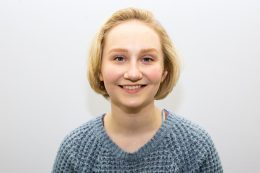
A mass shooting happens, lives are lost, discourse on the cause is opened up, thoughts and prayers are sent and we slowly go back to normal. We go about our daily lives. Headlines change, arguments on television cease, posts naming the victims on social media are buried under masses of content. When these instances and their victims become statistics, it’s easy to let tragedy become little more than a passing thought. If only it were so easy for the survivors and the families of those whose lives were lost. It’s no secret that we need to have better gun laws — there are activists even younger than I am who prove this. In addition to preventing these atrocities, we need to be more prepared for what happens after they occur.
Police were called to the home of a high school sophomore and survivor of the Parkland shooting on March 23 to investigate the apparent suicide of the teen, whose name has yet to be released. This comes just a week after college freshman and Parkland shooting survivor Sydney Aiello also died by suicide. Aiello’s family released that in addition to survivor’s guilt and a recent post-traumatic stress disorder diagnosis, her transition to college had been harder than most. Her terrifying experience of losing one of her best friends during the shooting at Marjory Stoneman Douglas High School made sitting in a classroom fill her with terror.
As recently as this Monday, Jeremy Richman, the father of one of the 20 children massacred in the Sandy Hook shooting in 2012, was found dead inside of his office. While details are still emerging, it is being investigated as a suicide.
It’s clear the effects of these shootings last longer than the few months following the actual event. The psychological scars that survivors and their families bear are a burden they have to carry for the rest of their lives, so why do we leave them on their own to cope? We can’t hold ourselves accountable for only the events that led to the deaths of the victims; we are accountable for those who are left behind.
Maybe this grief is made more difficult due to the weight we put on many of these attacks. Fifty-four percent of the 97 mass shootings in the United States since 1982 were perpetrated by white men. Yet we often avoid calling them what they are: terrorists. They are labeled as anything but racist when, in some cases, they blatantly are. Wouldn’t using the proper language give these crimes the weight they deserve rather than brushing them aside as random acts?
With at least 50 people dead as a result of an attack on two mosques in Christchurch, New Zealand, we are beginning to see a change. The attacker, a white nationalist, has been condemned by the country’s prime minister, Jacinda Ardern. She has called for stricter gun laws and has shown up at multiple memorials to show her direct support of the Muslim community. New Zealand has already passed laws banning assault rifles and semi-automatic rifles. It has taken them less than a month to enact changes we as Americans should have brought about years ago.
Ardern and the whole of New Zealand are showing the rest of the world how to handle atrocity. They prove that victims’ families and survivors simply deserve more.
Elizabeth Short is a sophomore double-majoring in biology and English.


